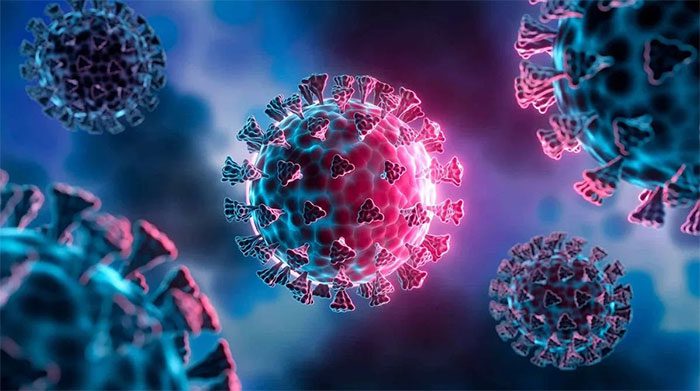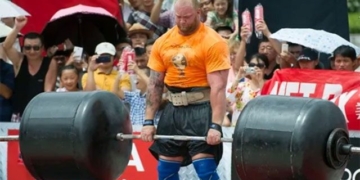When HA15 was tested on the bodies of mice infected with SARS-CoV-2, the drug significantly reduced the viral load in their lungs.
Although vaccination can provide protection against COVID-19, scientists continue to explore treatment options for severe infections in those who cannot be vaccinated or in cases where new virus strains emerge that evade vaccine protection.
A team of researchers at the Keck School of Medicine at the University of Southern California (USC) revealed that inhibiting the production of the chaperone protein could greatly reduce the replication of the SARS-CoV-2 virus.

Illustration of a mutation of the COVID-19 virus.
Led by Dr. Amy S. Lee, a professor of biochemistry and molecular medicine, the research team demonstrated that the chaperone protein (known as GRP78) plays a crucial role in the spread of SARS-CoV-2. According to the study published in Nature Communications, blocking the production of GRP78 or inhibiting its function with a new targeted drug prevented the SARS-CoV-2 virus from replicating.
Lee stated: “A major issue in combating SARS-CoV-2 is that it continuously mutates and adapts to infect and replicate more effectively in its host cells. If we continue to chase the virus, this could become quite difficult and unpredictable.”
Therefore, the researchers began to explore the role of GRP78 and discovered that while healthy cells require a certain amount of GRP78 to function normally, infected cells need much more GRP78. In a 2021 paper, researchers showed that when SARS-CoV-2 enters the body, “GRP78 is recruited to work in parallel with other cell receptors to bring the SARS-CoV-2 virus inside the cell, where it can replicate and spread.”
The research team questioned whether GRP78 was necessary for the nCoV virus to replicate within human lung cells. When they examined the lung epithelial cells of individuals infected with SARS-CoV-2, they observed that as the viral infection intensified, the infected cells produced higher levels of GRP78.
Thus, Lee and her team decided to use a special messenger RNA (mRNA) tool to control the production of GRP78 protein in human lung epithelial cells during cell culture without disrupting other processes. Later, when those cells were infected with SARS-CoV-2, they produced lower levels of mutant viral protein, demonstrating that GRP78 is essential for the replication and production of SARS-CoV-2.
To explore further, the research team tested a recently identified small molecular drug called HA15 on infected lung cells. HA15 turned out to be effective against cancer cells and in binding to GRP78. Subsequently, the researchers tested HA15 in genetically modified mice infected with SARS-CoV-2 and found that the drug significantly reduced the viral load in the lungs.
Along with HA15, Lee and her colleagues are also investigating the GRP78 inhibitor known as YUM70. They discovered that both HA15 and YUM70 could inhibit the production of mutant KRAS protein (a common mutation that tends to be drug-resistant) and reduce the survival of cancer cells carrying such mutations in pancreatic, lung, and colorectal cancers.
Published in the journal Neoplasia, these findings suggest that targeting GRP78 may also help combat deadly cancers. However, scientists believe that further research and clinical trials are needed to demonstrate that HA15 and YUM70 are safe and effective for use in humans.


















































